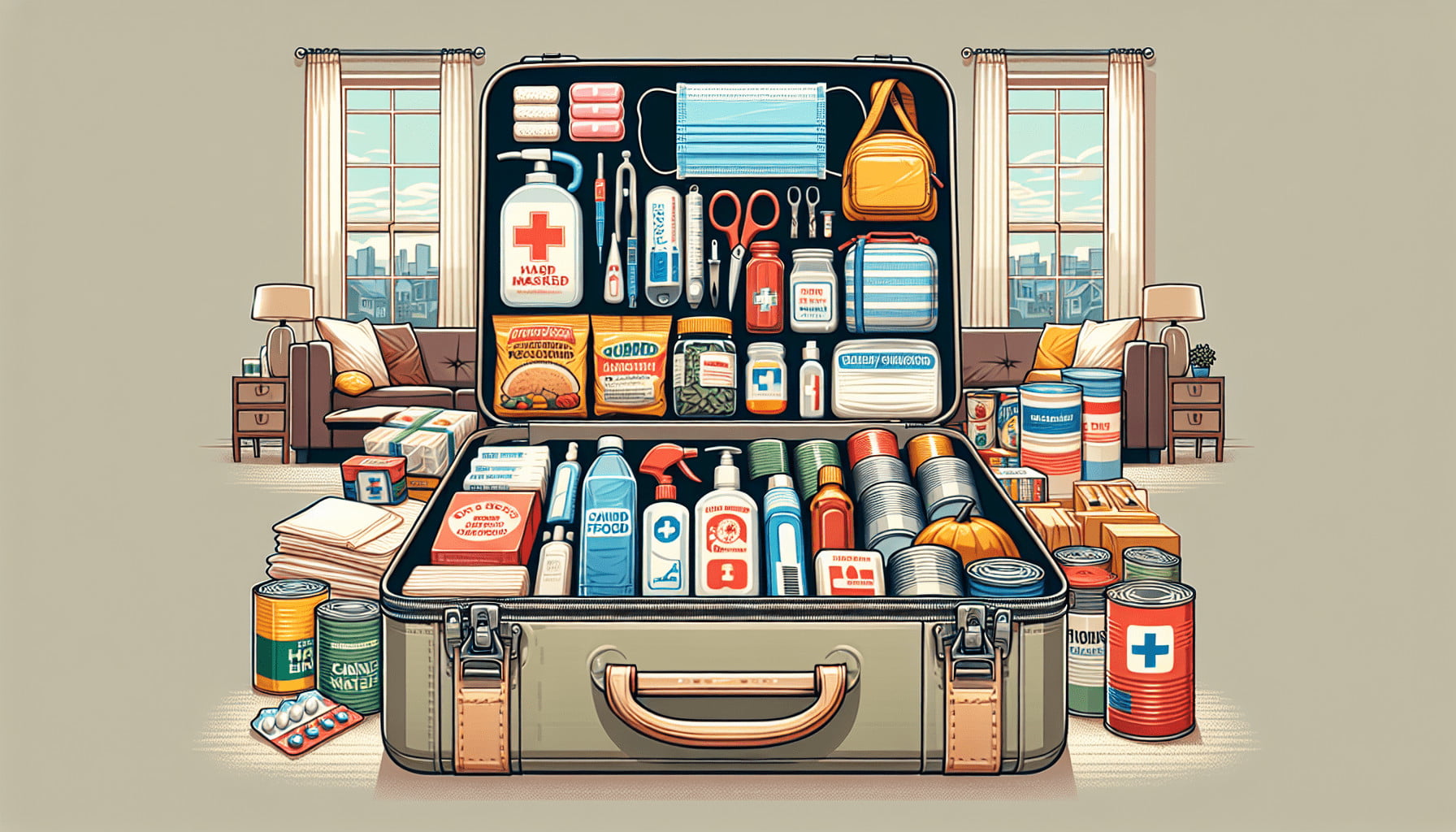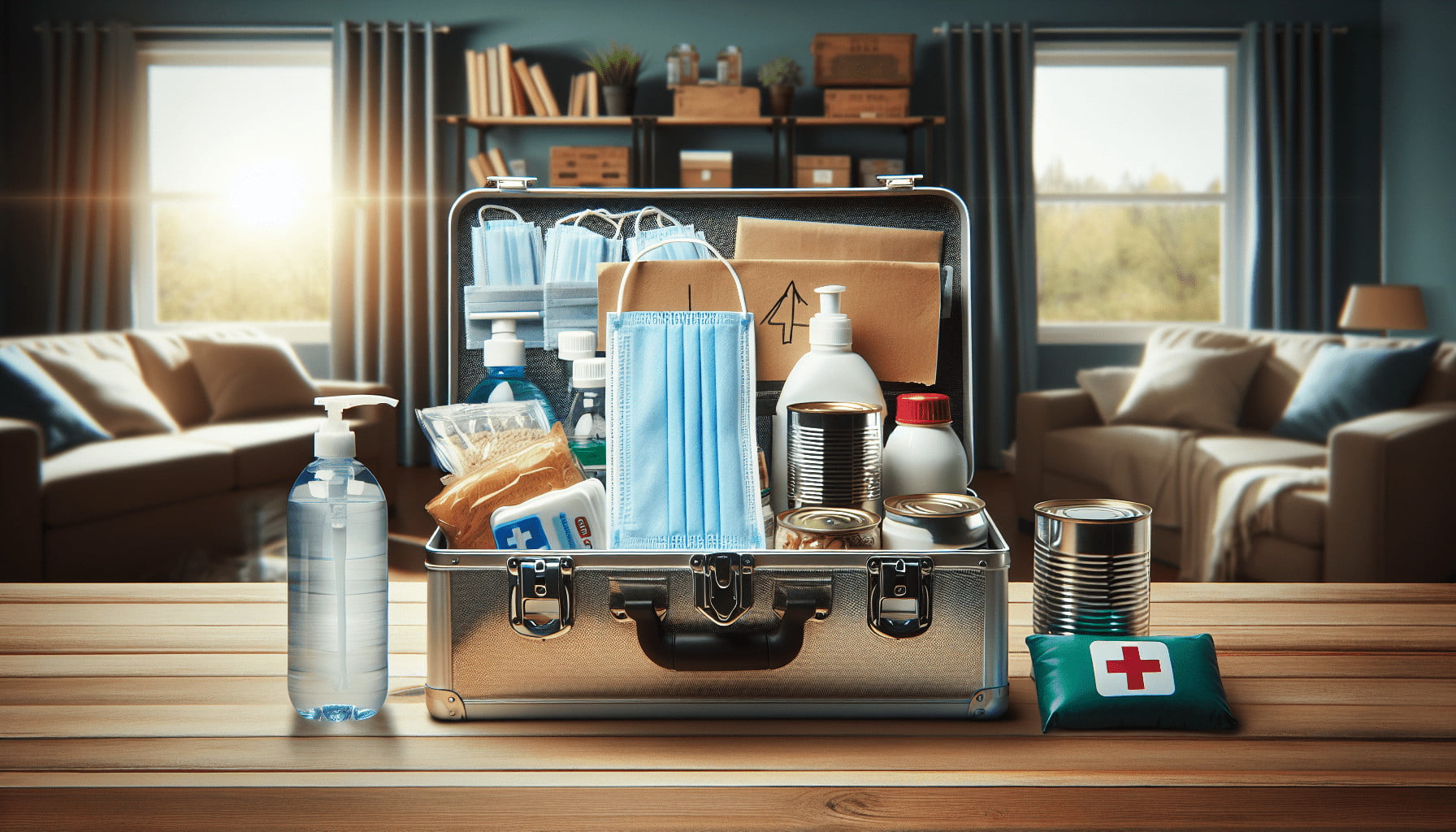Have you ever thought about how you’d handle another pandemic? It’s a pretty important question, given what we’ve all experienced recently. Being prepared can make all the difference. Let’s talk about the top ways to prepare for a pandemic, so you’ll be ready if—or when—the next one comes.
Understanding the Importance of Preparation
When a pandemic strikes, navigating through daily life can become incredibly challenging. The uncertainties surrounding health, safety, and daily needs can cause immense stress. Effective preparation can offer peace of mind and could be a lifesaver.
Learning From the Past
The past pandemics, including the recent COVID-19 crisis, have taught us crucial lessons. From how quickly a virus can spread to the importance of health protocols, reflecting on these experiences can guide our preparations for future pandemics.
The Psychological Impact
Don’t underestimate the psychological toll a pandemic can take. Anxiety, depression, and general stress levels can skyrocket. Being prepared can mitigate these effects, providing a sense of control amid chaos.
Health Precautions
Good health is your first line of defense against a pandemic. Here are some practical ways to prepare.
Stock Up on Essentials
Ensure you have a well-stocked medicine cabinet. Keep essentials like pain relievers, fever reducers, and a first-aid kit. Don’t forget any prescription medications you need to avoid scrambling last minute.
Vaccinations and Regular Check-ups
Stay current with vaccinations and regular health check-ups. Consult your healthcare provider for tailored advice on which vaccines and health measures are most important for you and your family.
Home Preparation
Your home should be a safe haven when a pandemic strikes. Let’s talk about making sure it’s ready.
Emergency Supplies
Prepare an emergency kit. This should include items like:
| Item | Quantity | Notes |
|---|---|---|
| Water | 1 gallon per person per day | Enough for at least 3 days |
| Non-perishable Food | Enough for at least 3 days per person | Items like canned goods, pasta, and rice |
| Flashlight | At least 1 per person | Extra batteries are a must |
| Radio | 1, preferably battery-powered | To stay updated with news |
| Toiletries | Enough for at least 3 days | Soap, toothpaste, etc. |
| Cleaning Supplies | As needed | Disinfectants, gloves, masks |
Setting Up a Quarantine Space
Identify a room where a sick family member can be isolated. Stock it with necessary supplies like medications, a thermometer, and some comfort items.

Financial Security
The economic impact of a pandemic can be devastating. Creating a financial safety net is crucial.
Emergency Fund
Build an emergency fund that can cover 3 to 6 months’ worth of expenses. This fund can help you cope with sudden job losses or unexpected medical bills.
Budgeting Wisely
During a pandemic, priorities shift. Make sure to create a flexible budget that can adapt to changing circumstances. Reduce non-essential expenses and focus on saving.
Stay Informed
Being well-informed is crucial during a pandemic. Knowledge is power, as they say.
Reliable Information Sources
Rely on credible sources for information. Websites like the Centers for Disease Control and Prevention (CDC) and the World Health Organization (WHO) provide accurate updates and guidelines.
Local Alerts and Community Updates
Sign up for local alerts to stay informed about what’s happening in your community. These could be from local health departments or community organizations.
Mental Health Preparation
Staying mentally healthy is just as important as physical health during a pandemic.
Practicing Mindfulness and Stress Relief
Ideas for stress relief include:
- Mindfulness Meditation: Spend a few minutes each day to center yourself.
- Exercise: Physical activity can boost your mood and reduce anxiety.
- Hobbies: Engaging in hobbies can provide a much-needed distraction and a sense of normalcy.
Create a Support System
Maintain connections with friends and family, even if it’s virtual. A good support system can help you feel less isolated and more supported.

Communication Plan
In an emergency, communication can make all the difference.
Family Communication Strategy
Develop a plan that includes:
- Emergency Contacts: Ensure everyone knows who to call.
- Meeting Points: If separated, decide on places to reconvene.
- Communication Methods: Have multiple ways to communicate (phone, social media, etc.).
Staying in Touch with Work and School
Keep the lines of communication open with your workplace and your children’s schools. Stay informed about their emergency plans and communication protocols.
Hygiene Protocols
Maintaining hygiene is crucial in preventing the spread of a virus.
Personal Hygiene
Simple steps include:
- Hand Washing: Wash your hands frequently with soap and water for at least 20 seconds.
- Avoid Touching Face: Especially avoid touching your face, specifically your eyes, nose, and mouth.
- Mask-Wearing: Wear masks where social distancing isn’t possible.
Home Cleaning
Disinfect frequently-touched surfaces such as:
- Door handles
- Light switches
- Countertops
- Electronics
Make a routine to ensure these places are cleaned regularly.
Community Involvement
Sometimes, tackling a pandemic is a community effort.
Volunteering and Support Networks
Consider volunteering for community health initiatives or support networks. Not only will you be helping others, but this also creates a more united community front against the pandemic.
Sharing Resources and Information
Collaborate with your neighbors to share essential resources and information. This could mean organizing community databases for food supplies or helping each other with essential errands.
Planning for Work and School
Work and school routines can be significantly disrupted. Let’s go through how to prepare for that.
Remote Work Setup
Ensure you have the necessary equipment for remote work. This includes:
- Reliable Internet Connection: Make sure your internet can handle video calls and other work needs.
- Workspace: Create a comfortable and quiet workspace.
- Software and Tools: Familiarize yourself with the tools and software you’ll be using.
Remote Learning
Set up a conducive learning space for your children. Equip it with:
- Electronics: A computer or tablet with a good internet connection.
- Supplies: Have all necessary school supplies like notebooks, pens, and textbooks.
- Schedule: Help them stick to a routine to keep a sense of normalcy.
Ensuring Food Security
Food security is another critical aspect to consider.
Stockpiling Wisely
Stockpile non-perishable items but remember the balance. Don’t hoard but ensure you have enough to last a while. Focus on:
- Grains: Rice, pasta, and oats.
- Canned Goods: Vegetables, beans, and fruits.
- Frozen Foods: Meat, vegetables, and ready-to-eat meals.
- Long-Lasting Snacks: Nuts, dried fruits, and granola bars.
Gardening and Self-Sufficiency
Consider growing your own food. Even a small garden can provide fresh produce and reduce your dependency on store-bought items.
Backup Plans for Essential Services
Ensure you have backup plans for essential services that could be disrupted.
Power and Water Supply
Consider investing in:
- Generators: To ensure you have a power backup.
- Water Filters: Useful in case of water supply issues.
Child and Elderly Care
Pandemics can disrupt regular care services. Have backup plans for taking care of children and elderly family members. Create a care schedule with family members or close friends to distribute responsibilities.
Conclusion: A Thoughtful Approach
Being prepared for a pandemic isn’t about living in fear but about being ready and resilient. By following these top ways to prepare for a pandemic, you can ensure your safety, health, and well-being during uncertain times.
Remember, preparation is an ongoing process. Stay updated, stay informed, and always be ready to adapt. When the next pandemic comes, you’ll be ready to face it head-on.
